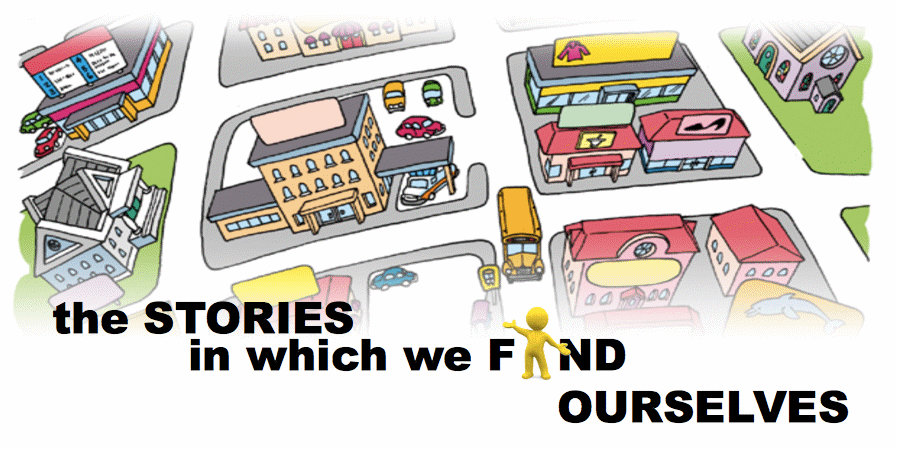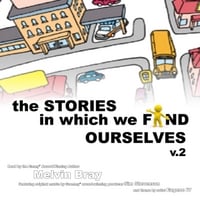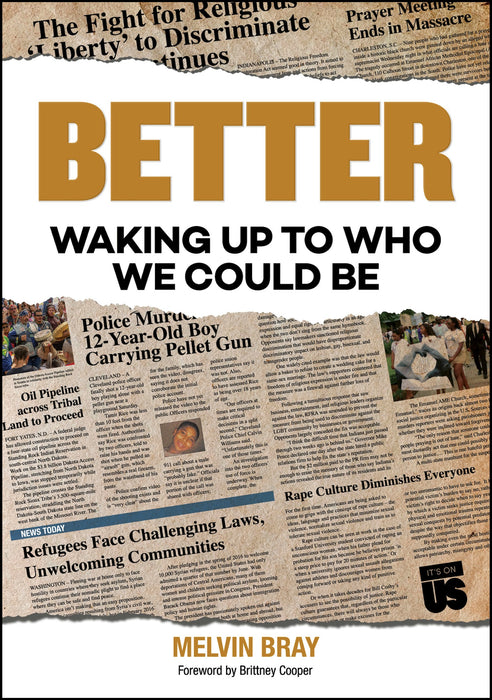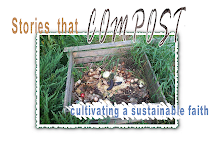Project Pitch
Here's a fuller explanation of the story project should you know of a publisher or literary agent who might be interested:
Vision
As I would read to my three children from the bible story series and authors with which I grew up, I would find myself in the awkward position of trying to rewrite on the fly the inane triumphalism that infects the stories that taught me to believe. Moreover, I was embarrassed by my children's insightful questioning as to whether David or Esther, Mary or Jesus actually looked like their mid-century, pro-Anglo, pro-West depictions. There are only so many times the response, "That is just one person's imagination of how it might have been," can cover a multitude of sins. My only recourse has been to re-tell the bible stories from scratch, which is not altogether unpleasant for one like myself, but my heart goes out to those parents less disposed to such flights of fancy.
One of the truths realized in this post-colonial/post-modern era is that no telling of any story is neutral. As Pres. Obama's first appointment to the US Supreme Court, Sonia Sotomayor, has now famously posited, we—and our stories—are products of our unique personal experiences. Snow White's "Mirror, mirror on the wall, whose the fairest of them all?" is not innocuous. It is far and away time to raise our children on honest images of the people to whom Jesus was born and the times in which they lived. It is also time that we acknowledge the uncertainty, or perhaps better said, humility with which bible heroines and heroes held faith and bequeath to our children that way of holding faith too.
This is proposed a comprehensive retelling of the biblical narrative from Genesis to Revelation (500 or more stories). It is proffered as a joint project between the youth development nonprofit Kid Cultivators, the global theological conversation known as Emergent Village and a publishing partner, the proceeds of which would benefit each. It would be an ongoing project to collect or write and publish (in print, audio and digital mediums) re-imaginings of the biblical narrative for a thirsty 21st century.
The project will be self-published here online under a Creative Commons copyright until such time a publishing partner is found. If you know of an intrepid agent or publisher who may be interested, put us in touch.
Content
One of the innovations in this telling of these oh-so-familiar tales is our organizing principal. The grouping of the stories follow the four major movements of Judeo-Christian scripture: stories of creation, stories of emancipation, stories of inauguration and stories of incarnation. Hearers will quickly recognize how these four great themes echo repeatedly throughout scripture and throughout life. The stories in this release are stories of creation. They explore age old questions like "Where do we come from?" "Why are we here?" "How best might we live?"
Another innovation in this recounting of the biblical narrative is the reframing of the stories as running conversation between persons who don't always agree, but are committed to being in community with one another. This framing might also be described as an intergenerational wiki to which each era contributes—in often inconsistent ways—in an effort to represent and to further a culture's collective wisdom and encounter with the divine, in all its glorious diversity. Community and conversation become the primary lens for the series, in reclamation of the ancient rabbinical traditions of Targum and Midrash.
Each biblical story is introduced by a lead narrative, following in the targum tradition, that conveys the key plot points of the story as it appears in the Bible. Many lead narratives will then be accompanied by midrash whose explicit purpose is to interpret, contextualize and even re-contextualize the ancient narrative for 21st century readers. In this way we mimic the way the Bible is composed and, we feel strongly, should be approached.
Many will find our gender-inclusiveness regarding the divine, if not innovative, refreshing. Rather than pursuing male hegemony through the use of solely masculine pronouns in reference to God and angels, this telling of the story uses both male and female gender references interchangeably, to broaden the hearers understanding of the interplay of both feminine and masculine in the divine.
Another ingenuity is the acknowledgment of the vast array of literary genres represented in scripture. Rather than present the entire biblical narrative as a chronologically linear history or as a scientific answer book, we freely confess it's amazing diversity. For example, we recognize the Creation narrative as the poem it intermittently is, with the attendant imagery and use of figurative language one would expect. Hearers learn the conventions of the narrative, poetic, rhetorical, dramatic, apocalyptic, historic and legal literature that make up the biblical library and appreciate how even scripture functions according to the praxis of the best writing.
As would be expected, the stories are interspersed with actual scripture, whether as reference or allusion. In addition, these precious stories—whose real credibility lie in the humble confidence of the faith they have sustained throughout the ages and not in the unquestionable certitude that some have professed in their own interpretations of them—are told with requisite meekness and openness to other explications. They are stories that compost well so as to be recomposed for generations to come. Such a confession of humility is necessary to equip future keepers of the biblical stories to participate cooperatively in a pluralistic world.
When we tell the stories well, much of this is accomplished almost imperceptibly as a matter of course and in continued fulfillment of YHWH's admonishment that we tell our stories to our children when we lie down and when we rise up and when we walk in the way.
Audience
Primarily youth, ages 9-17. At Kid Cultivators we speak of maturity in terms of three-year cycles, so in naming a 9-17 age range, the coordinating-author is actually only talking about 3 groups of kids. The stories are written to the middle range 12-14, but will likely be used for younger children. The insightfulness of the stories will also be appreciated by those slightly older (at least this is the author's recent experience as a high school teacher). The contextual integrity of the storytelling may appeal as much to messianic and emerging Jews as to progressive Christians.
Distinction
This is the first Bible story compilation of which we are aware that will openly incorporate the theological perspectives of academic and public thinkers, such as Jürgen Moltmann, Lesslie Newbigin, James Cone, David Bosch, Stanley Hauerwas, Abraham Joshua Heschel, Miroslov Volf, Ched Meyers, Cornel West, Brian Walsh, Brian McLaren, Pete Rollins, Richard Twiss and Musa Dube as well as the biblical scholarship of those like Brian Blount, Walter Brueggemann and N.T. Wright. Though informed by the expertise of professional expositors of the biblical narrative, this is simultaneously a compilation of collective wisdom indicative of the wiki-world in which we now live. The hope then is to gather particular tellings of biblical stories that have formed and inspired emerging faith communities around the globe. To this end, we invite you to interact here on our website and/or join in the storytelling at the first annual Wild Goose Festival in Shakori Hills, NC, 23-26 June 2011.









